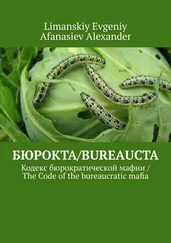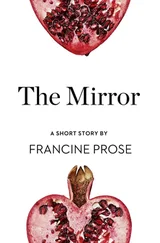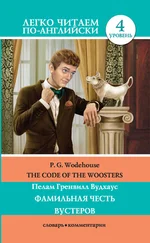They went down and down, Krucevic following, maybe thirty feet into the earth until the dying darkness at the tunnel's mouth became impenetrable and the air was stale and decades cold.
Otto dumped her on the tunnel floor. She retched, whimpered, and vomited blood. Somewhere above, Jozsef lay dreaming in the field. She had done this to him with her violent fingers, she had dashed to the ground the drugs that could have saved him, and he had watched her, silent, with the mute submission of a child whose life has always been determined by other people.
Would she have risked so much if the boy were her son?
The passage before them had once been concrete, or something more akin to the earth, like stone. She could see nothing until Krucevic's flashlight played over the wall in front of her. An archway, perhaps five feet high, yawned like the mouth of a whale. Beyond it, only darkness and the fear that thrives in darkness. It reeked as a catacomb reeks, as all the dead spaces where civilization ends. Uncontrollably, Sophie began to shudder.
She had thought that the vials of crushed antibiotic would force Krucevic's hand, that to save his son he would abandon his mad quest to purify Europe. She had not reckoned with obsession. And now Jozsef was dying. His blood on her soul.
Otto dragged Sophie forward, past openings narrow as cannon ports in the cold stone walls. Krucevic stopped suddenly and shone his beam into one of them.
“Welcome to Ziv Zakopan, Mrs. Payne.”
Sophie squinted against the light, pain shooting through her eyeballs. The beam picked out a heap of skeletons, innumerable, splayed across the dirt floor of the low-ceilinged space. They had probably been shot, and died where they lay:
Half a century later she had a snapshot of how it had been the moment of their murder.
“What is this place?” she croaked.
“It is the most hallowed ground of sacrifice in Bosnia,” Krucevic replied, “which is saying a good-deal. Do you know what happened here fifty-eight years ago?”
“The war”
“The war.” Krucevic's laughter was brittle with contempt. “Mrs. Payne, there has been war in these hills for centuries. But in 1942, Ziv Zakopan was a Croat place. It was part of the Independent State of Croatia, which for three glorious years ruled this country.”
“Ustashe,” Sophie muttered.
“Ustashe, which in the Croatian language is another word for fascist. Yes, Mrs. Payne. Ziv Zakopan was established with the help of Nazi commanders and with the leadership of our great Ante Pavelic, the father of independent Croatia. We swept the Serb hordes out of Bosnia, we threw their women and children oft our cliffs, we converted the Orthodox to the one true Catholic faith, and then we sent them to meet their God. There are the camps that everyone knows about Jasenovac, near Zagreb, and Stara Gradiska but at Ziv Zakopan, we destroyed our worst enemies, the partisans ruled by Tito, the faithless ones. We left them here to rot in the bowels of the earth, already less than human. And the world did not care.”
“No,” Sophie protested. The pain was growing inside her like a swarm of bees, angry and intense, on the verge of bursting.
“We would have known. This place...”
“This place has been buried for half a century, and it will be buried long after your name is forgotten,” he said implacably.
“Do you think they remember history in your country, Mrs. Payne? Everyone who knew about Ziv Zakopan is dead. Except for me.”
Half a century. Of being classified as Missing, Presumed Dead. Of no one knowing. Her gaze met the hollow eye sockets of a skull, inches from her face, flooded with Krucevic's beam. A thousand jaws, gaping wide in terror. No one walking in the fields above had even heard these people scream.
“Do you know what it means in English Ziv Zakopan?” Krucevic stared into her fevered eyes. “Literally it means, "buried alive." But a more elegant translation might be “Living Grave,” Mrs. Payne.”
Sophie knew, now, why she was here.
Otto dragged her away from the charnel pit.
They reached what must have been the central room, the command center, twelve feet by twenty, with two wooden tables and a scattering of chairs, some broken and canted on their sides. Krucevic stopped short in the entryway, sliding the beam around the walls, his breath rapid now and shallow with excitement.
“The Kommandant lived in Sarajevo, but his days were spent here his days and many of his nights. Underground, all hours are the same.”
“You can't know that. You're older than I am, but you probably weren't even born in World War Two.”
“I was three when the Kommandant was taken. Old enough to remember the door to the tunnel, to remember these fields.”
“Your father?” Sophie gasped.
“He denied them the final victory, Mrs. Payne. He died in captivity, by his own hand.” Impossible now to read the crazed eyes under the clipped black hair. But she could feel the singing tension in the dank air of the chamber, the crackling of obsession barely suppressed. Krucevic was at his most dangerous.
“A son should know his father's greatness. A son should live to see his father avenged.”
“You will never live to see your kind of vengeance, Krucevic, unless the world runs mad and everything good and true is utterly destroyed.”
He turned the torch full on her face, blinding her.
“You are dying, Mrs. Payne.”
His voice was utterly indifferent.
“I want you to die knowing just how wrong you are. You destroyed those vials of antibiotic yes, Tonio told me how it was done in the hope that Jozsef's illness would stop me. You thought you could crush my vision of a new Europe with the ampules under your heel. You tried to kill my boy. For that, you forfeit any right you might have had to consideration. You deserve to be tortured, Mrs. Payne.”
“I have been,” Sophie muttered. By the thought of what she had done to Jozsef.
“You deserve a public execution.” His face was close to her own now, his eyes shining in the torchlight.
“But execution is too painless. I want you to die slowly here, I want you buried alive. And while you struggle for breath while you crawl through the dirt I will go on. I will save Europe. And my son.”
“Otto, let us see whether Mrs. Payne is able to stand.”
Otto heaved her to her feet, then backed away. Sophie swayed and clutched at a chair; it toppled over as she fell.
“I should judge her in no danger of escape,” Krucevic said.
Eleven
Langley, 2:46 p.m.
“The call just came through from state,” Scottie Sorensen told the DCI. “Marinelli's body will be on a plane home tomorrow night.”
“And Michael O'Shaughnessy?” Dare didn't turn away from her view of the pin oaks bordering the chasm of the Potomac River. “Does his body come home, too?”
The news of Eric's death had filtered through to only a few of the Agency faithful. It had come in a roundabout fashion, as such news must, because the passport he held as Michael O'Shaughnessy bore a next-of-kin notification number that ended eventually at the CIA. The person designated to take such calls — from the State Department's consular section — also had access to the bank of real names associated with false passports. Haley Taggert could now be included among the number of those who knew that Eric Carmichael hadn't exactly died two and a half years before.
In a private session in the DCI's office, Dare had tried to impress upon the administrative assistant that the matter was compartmentalized beyond her level of security clearance. Haley didn't know where Eric's body had been found or under what circumstances. With any luck, Dare could keep that information a close hold. But luck depended in part upon the Central European LegAtt's control of the Hungarian police and the press corps milling through Budapest. Dare figured her luck had run out.
Читать дальше
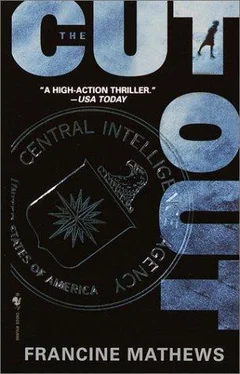
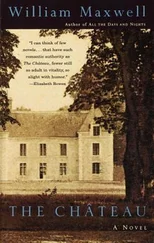




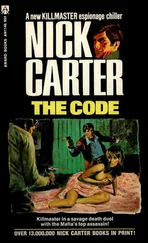
![Микки Спиллейн - Death of the Too-Cute Prostitute [= Man Alone]](/books/437201/mikki-spillejn-death-of-the-too-thumb.webp)
